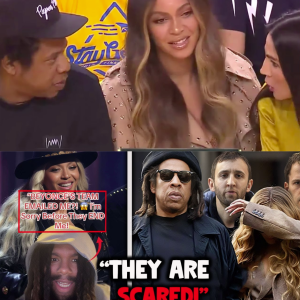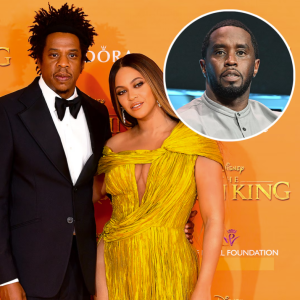**Title:** Hollywood Controversy: Tyler Perry, Kevin Hart, and Dave Chappelle Stir Debate on Representation
Recent discussions surrounding Hollywood’s treatment of Black male actors have reignited controversy, with prominent voices such as Dave Chappelle and Ice Cube addressing concerns about how Black men are portrayed in the entertainment industry. A recurring theme has emerged: many feel that Black male actors, including major stars like Kevin Hart, are being pressured into roles or actions that compromise their dignity, with some even claiming there’s a hidden agenda in play.
Chappelle, a well-known critic of Hollywood’s norms, once remarked that “they put every Black man in a dress at some point in their career.” His comments suggest that there is an ongoing pattern in Hollywood of emasculating Black men by casting them in roles that undermine their masculinity. The debate surrounding this issue has intensified, particularly as Chappelle voiced concerns about fellow comedian Kevin Hart, who, despite previously vowing never to compromise his values for fame, appeared in a TV show donning feminine attire—a move that sparked widespread criticism.
Chappelle’s allegations didn’t stop at wardrobe choices. He also hinted that Tyler Perry, an influential figure in Black cinema, may be manipulating stars like Hart for profit. Perry, known for his popular “Madea” films, has been accused of perpetuating negative stereotypes of Black men and women through his work. While Perry’s success is undeniable, with hits on both stage and screen, critics argue that his portrayals often reinforce harmful tropes.
The controversy surrounding Perry’s influence has sparked further debate. A Twitter user recently shared a video criticizing Perry’s body of work, claiming that his creative decisions are driven by fear of offending white audiences, leading to a skewed representation of Black people. This critique echoed earlier concerns from filmmakers like Spike Lee, who famously referred to Perry’s work as “coonery and buffoonery.”
Adding to the complexity of this discussion, Kevin Hart’s reaction to Chappelle’s comments has drawn even more attention. After Chappelle publicly questioned Hart’s choices, the two comedians had a confrontation, bringing to light tensions between Hollywood’s biggest Black stars. Hart, known for his brand-conscious approach, had previously vowed not to participate in “unprofessional activities” for Hollywood’s sake. However, his recent actions have left fans wondering if he is now contradicting his earlier stance.
Hollywood’s treatment of Black actors has long been a contentious issue, and the current debate only adds fuel to the fire. Critics of Perry argue that his work often casts dark-skinned actors as villains, while lighter-skinned characters are portrayed as heroes—a trend that has sparked discussions about colorism in the industry. Chris Rock, another comedian, has humorously pointed out this recurring theme in Perry’s films, suggesting that even someone as influential as Tupac Shakur could have been cast in a negative light had he appeared in one of Perry’s movies.
The entertainment industry’s complicated relationship with race continues to be a topic of concern. From Chappelle’s refusal to wear a dress on screen to Kevin Hart’s unexpected choices, these incidents highlight the broader issue of representation in Hollywood and how Black men are often depicted. While Perry’s contributions to Black cinema have undoubtedly paved the way for more diverse storytelling, the criticism surrounding his methods suggests that the conversation about fair and accurate representation is far from over.
As the debate rages on, figures like Chappelle and Ice Cube continue to advocate for the dignity of Black actors in the industry, calling for greater respect and more nuanced portrayals. Whether Hollywood will heed these calls for change remains to be seen, but one thing is clear: the dynamics between its most influential figures are more complex than ever.
This appears to be a script or narrative for a commentary video that discusses a variety of topics related to Hollywood, the entertainment industry, and issues of race, gender, and media representation. It delves into specific points such as:
- Kevin Hart and crossdressing: The mention of Kevin Hart, referencing a broader discussion about black men in Hollywood being put in dresses for comedic purposes, linking this to past comments by Dave Chappelle.
- The Illuminati speculation: It touches upon conspiracy theories that have surrounded certain celebrities, including Kevin Hart, and a clip from Kelly Clarkson’s show where Hart cut her off during a sensitive conversation.
- Tyler Perry’s portrayal of black women: It highlights debates about Perry’s depiction of black women in his films, with both supporters and critics weighing in on how his works impact perceptions of black women.
- Crossdressing in comedy: There is an exploration of how black comedians, like Martin Lawrence, Eddie Murphy, and Jamie Foxx, have adopted crossdressing in their comedy and the implications of these choices.
- Ice Cube’s experiences with Hollywood: The script also mentions Ice Cube’s perceived exclusion from certain platforms like Oprah’s show, and his thoughts on Hollywood’s treatment of black entertainers.
The script seems to use these instances to explore broader cultural issues regarding black masculinity, media stereotypes, and corporate or elite control in the entertainment industry. There’s also a critical examination of how black performers navigate limited roles and the pressures they face to conform to certain narratives for career survival.
If this is part of a larger video you’re working on, would you like help refining any sections, or adding transitions or analysis?




